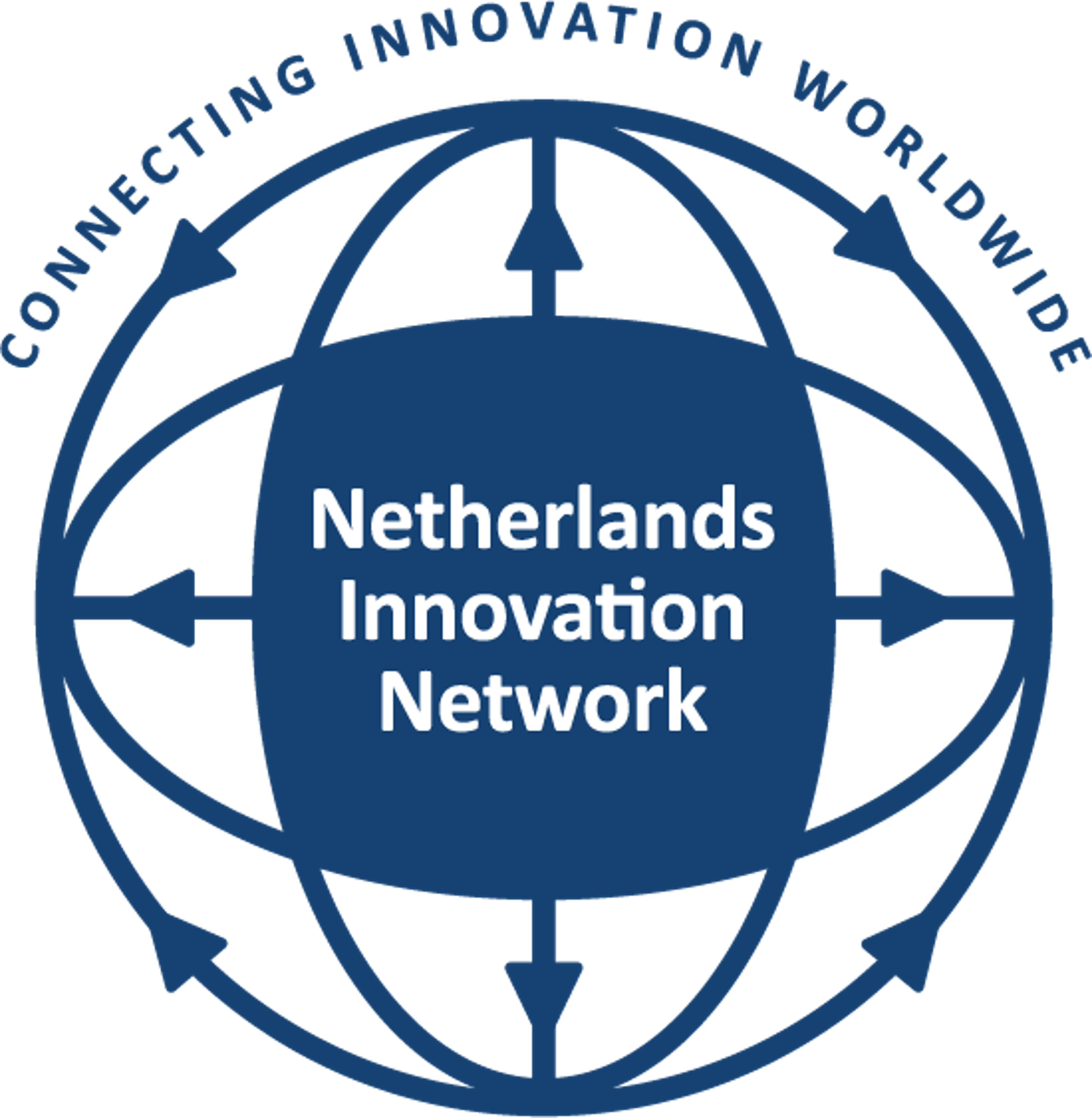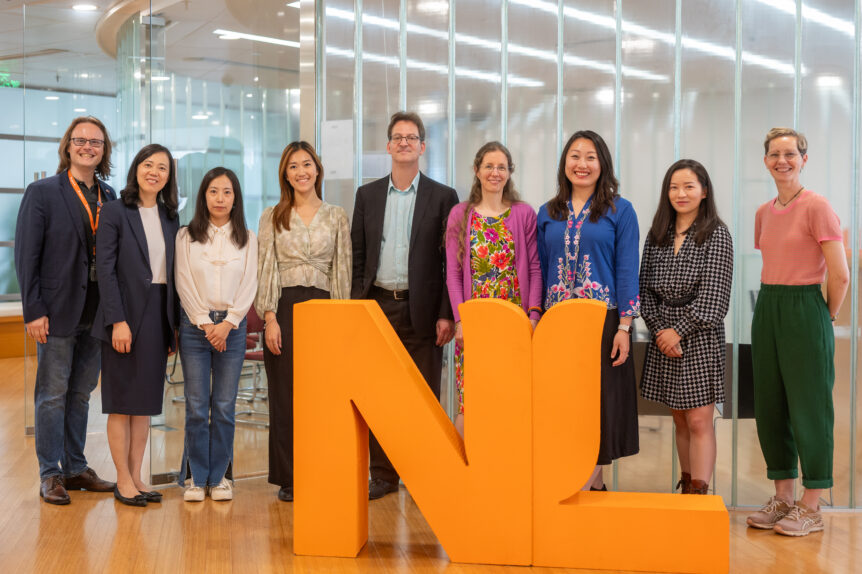The Dutch Research Council (NWO) and the National Science Foundation of China (NSFC) are funding the “Towards Inclusive Circular Economy: Transnational Network for Wise-waste Cities (IWWCs)” project. This collaboration involves teams from Erasmus University Rotterdam, Delft University of Technology, Peking University, Tongji University, and City University of Hong Kong. The four-year project focuses on inclusive wise-waste cities.
As the project concludes, Dutch scientists visited China, participating in seminars and workshops in Guangzhou, Shanghai, and Beijing, organised and co-organised by the Netherlands Innovation Network China. These events showcased research findings and discussed future collaboration, highlighting the importance of Sino-Dutch cooperation in addressing global challenges.
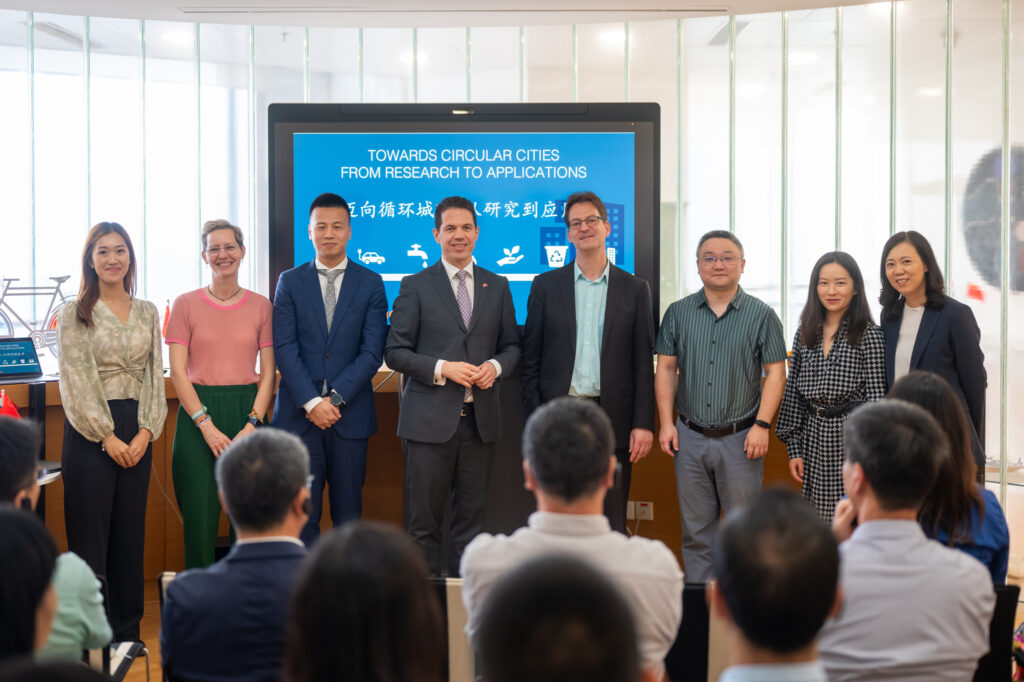
In just 30 years, the urban population is projected to grow from 4 billion to nearly 7 billion, with migration equivalent to the entire population of the EU moving to cities every five years. This urban migration, driven by better living standards and job prospects, helps lift rural areas out of poverty but strains sustainable city management and risks widening the wealth gap, potentially destabilising cities and nations.
In this narrative, NWO (Dutch Research Council), via the Merian Fund, and the National Science Foundation of China (NSFC) collaborate to foster Sino-Dutch research partnerships by funding joint projects involving interdisciplinary teams of Dutch and Chinese researchers and stakeholders.
Scientists from Erasmus University Rotterdam , Delft University of Technology, Peking University, Tongji University, and City University of Hong Kong jointly carried out a 4-year research project titled Towards Inclusive Circular Economy: Transnational Network for Wise-waste Cities (IWWCs). This project aims to build a Sino-Dutch transnational network for the design on inclusive wise-waste cities, focussing on agricultural products, electronic products and plastic products, and carry out the comparative research from three levels saying urban metabolism, inclusive infrastructure design & management, and community building, to comprehensively explore and evaluate the implementation effects of wise-waste cities. Outcomes are expected to support inclusive cities and zero-waste cities pilots in China and The Netherlands.
The project is nearing its conclusion this year and last week there was one final visit of the Dutch team to China and the Chinese partners after years of online meetings and remote joint research during COVID period.
The Netherlands Innovation Network China organised and co-organised several relevant events in Guangzhou, Shanghai and Beijing and invited the group of scientists to join and participate.
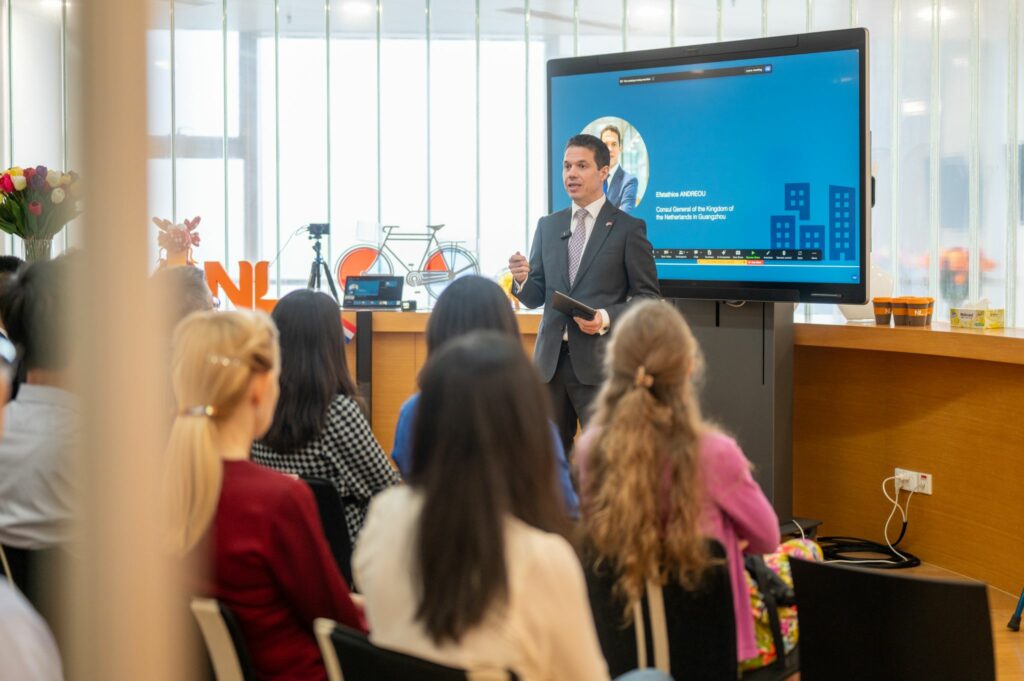
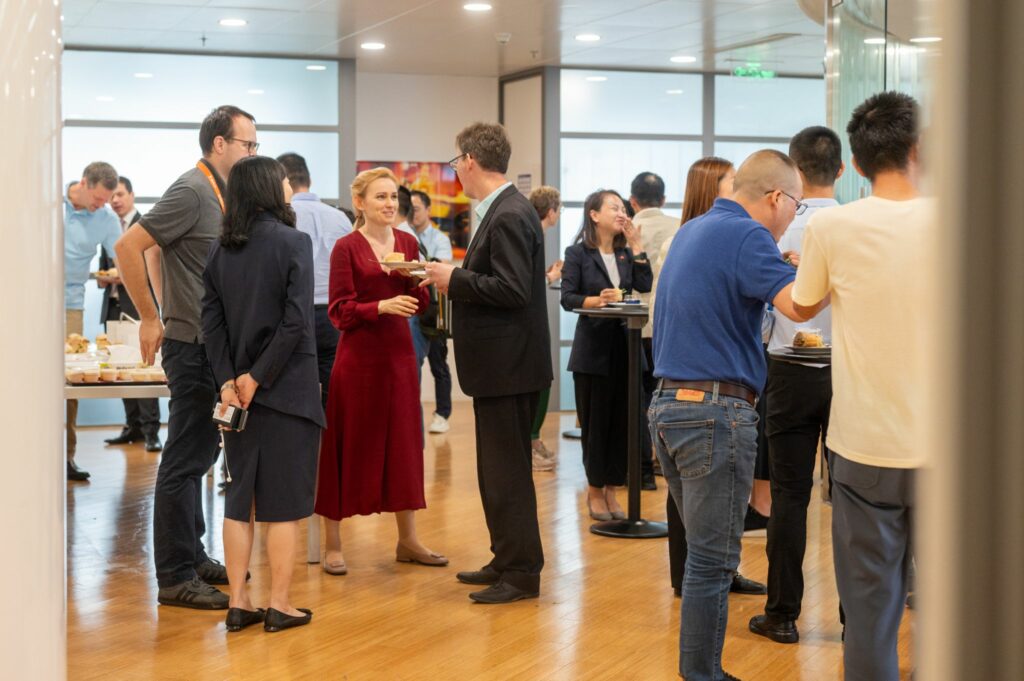
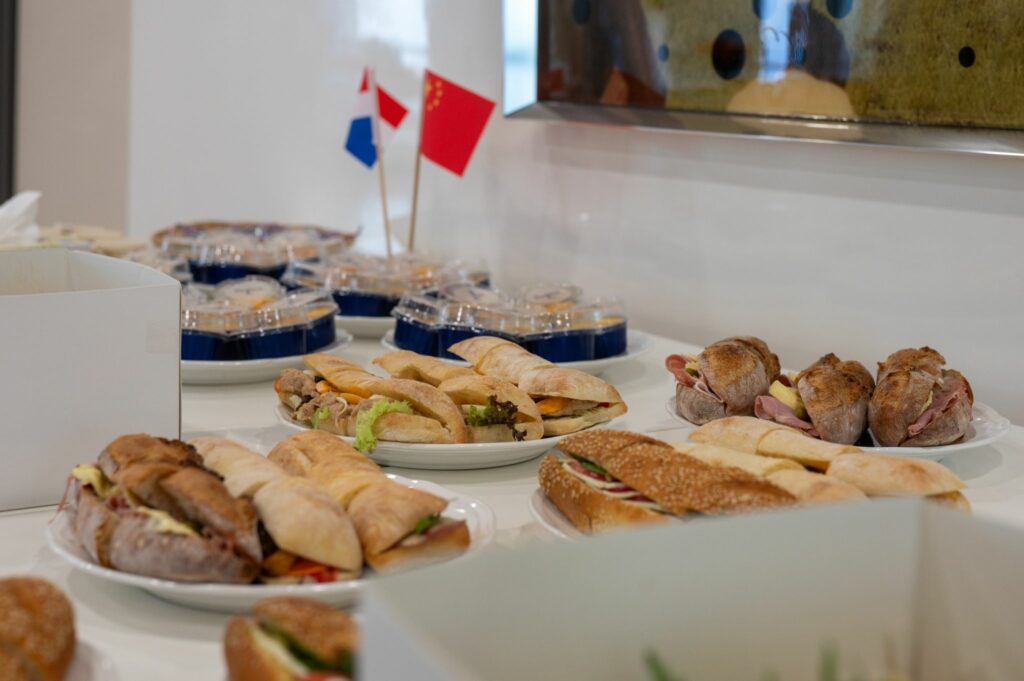
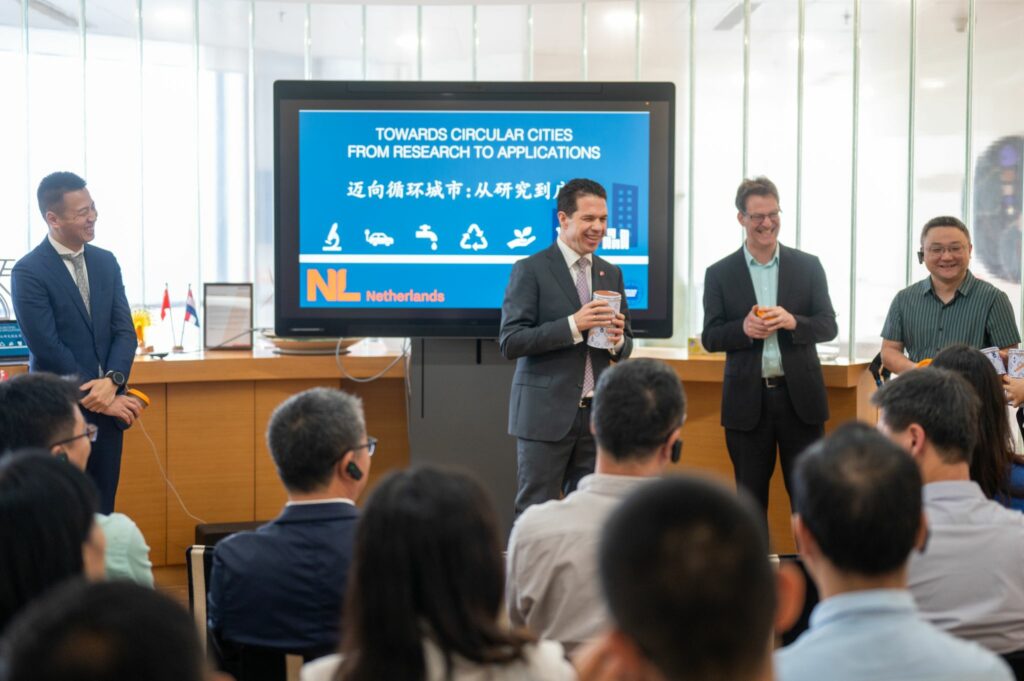
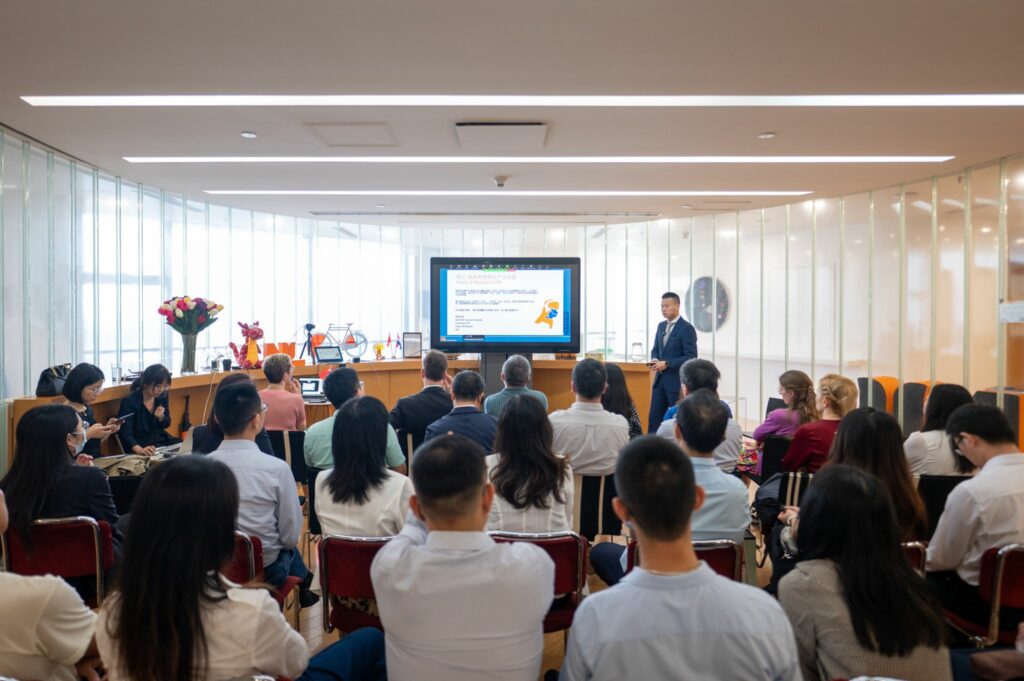
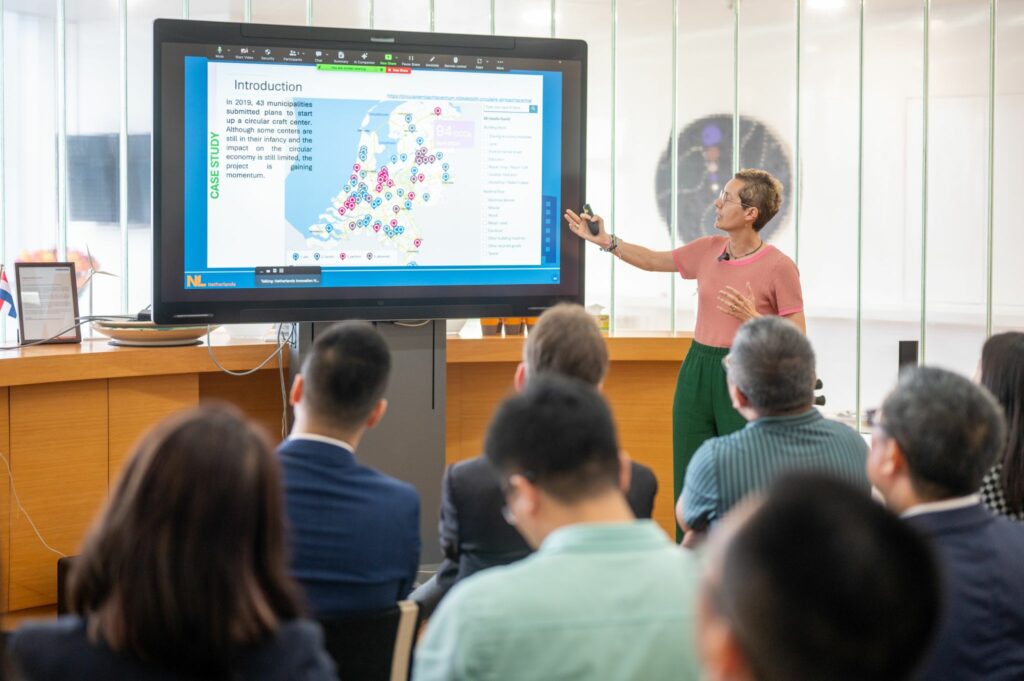
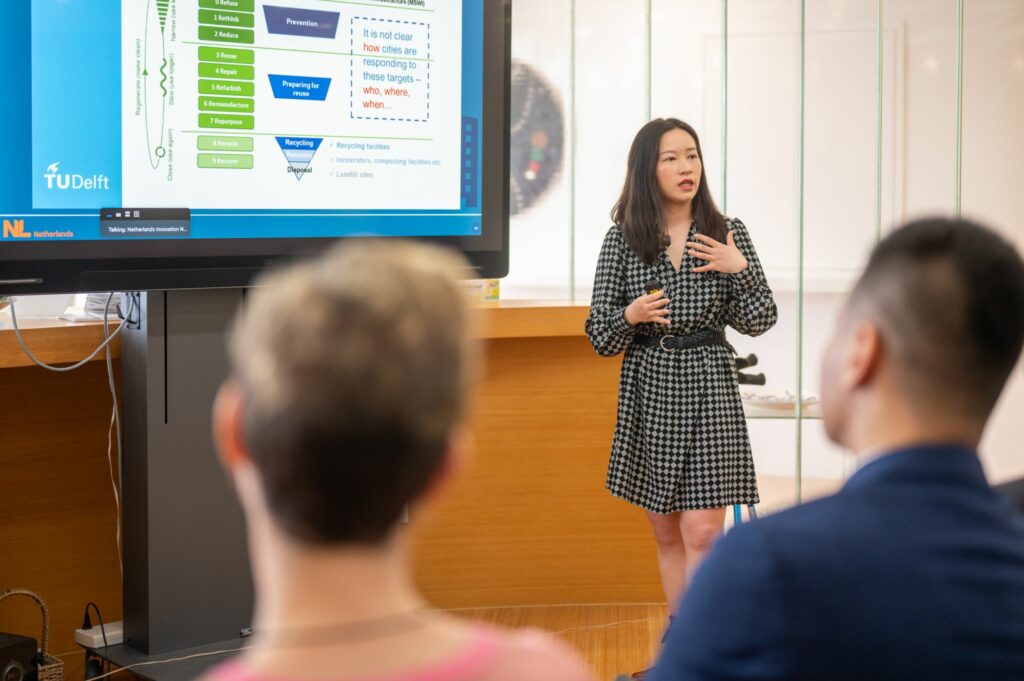
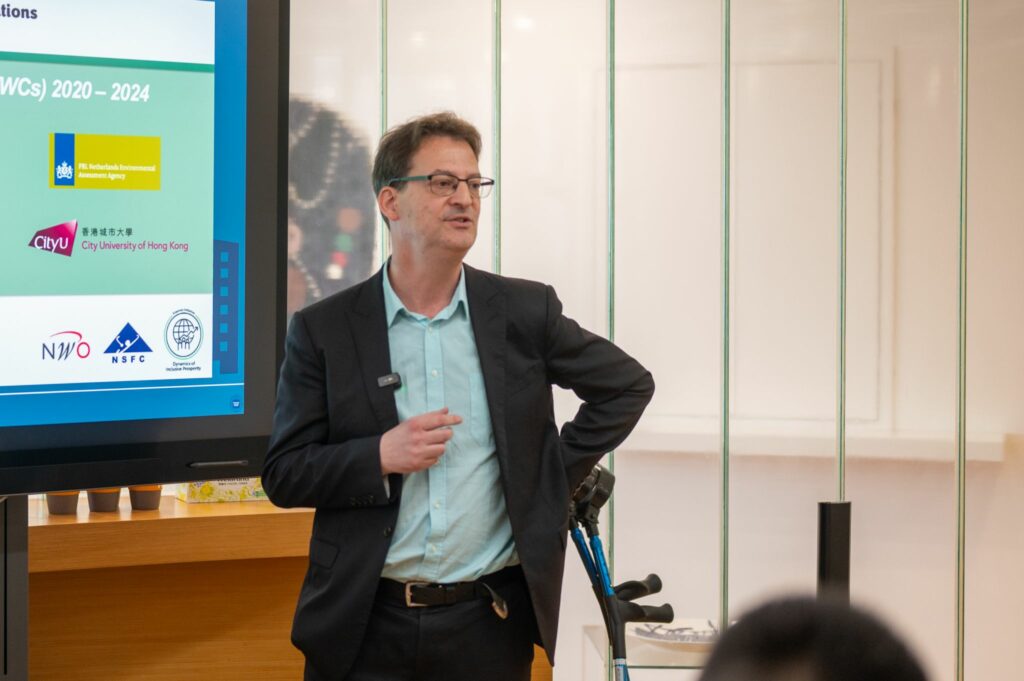
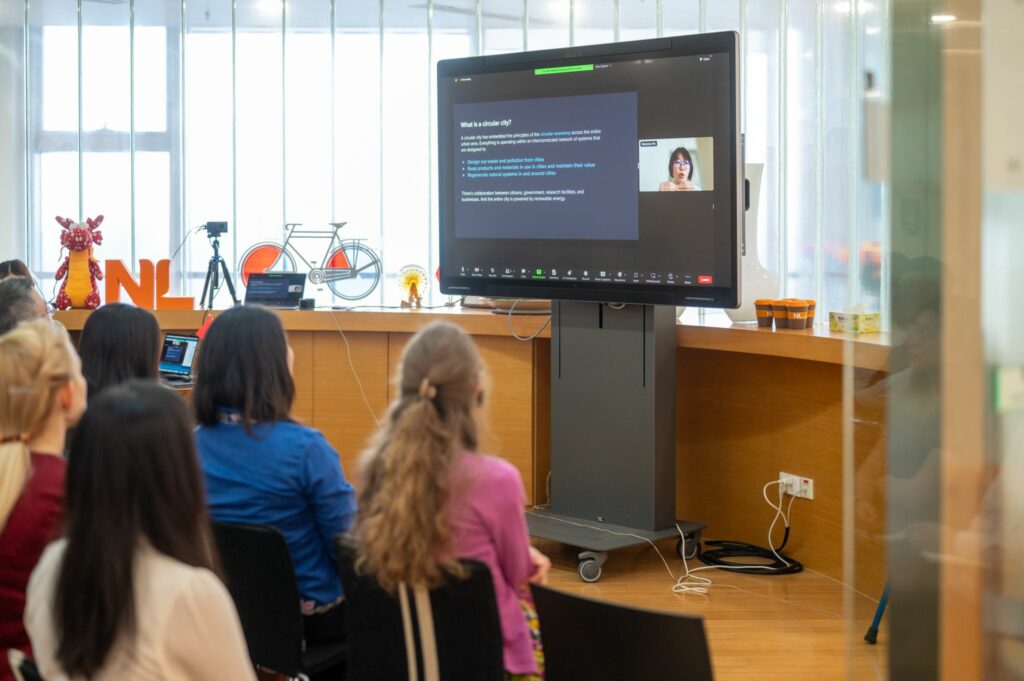
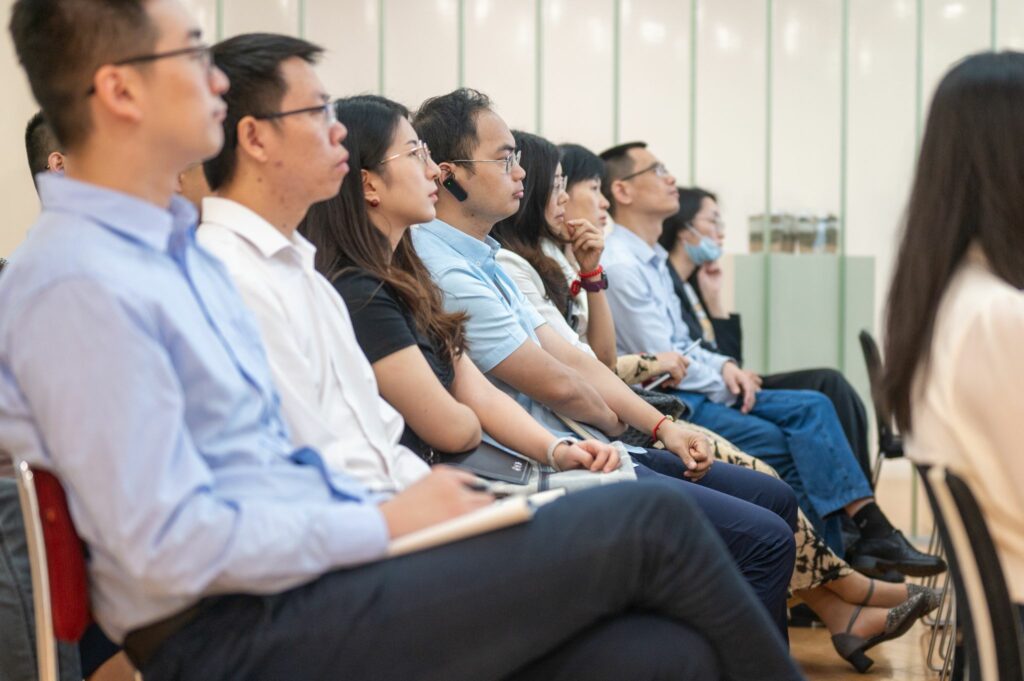
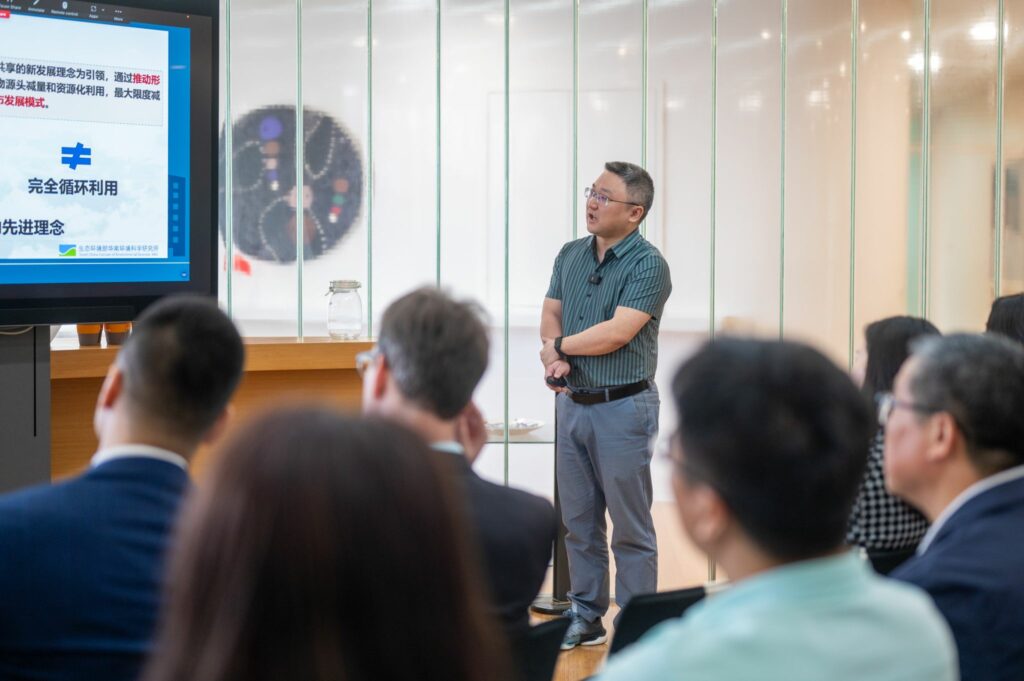
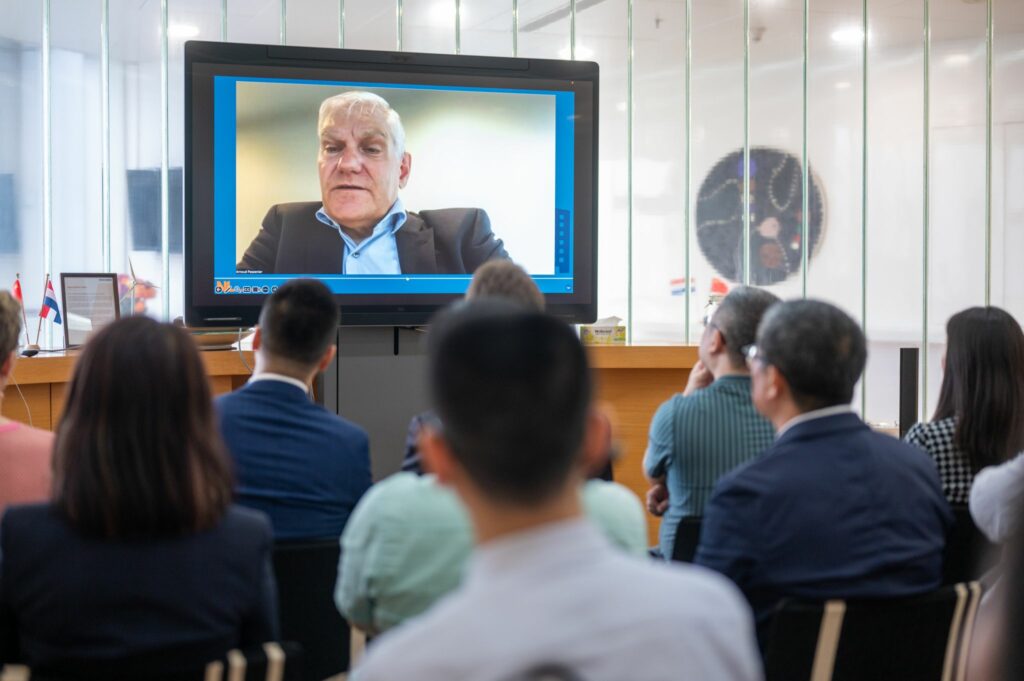
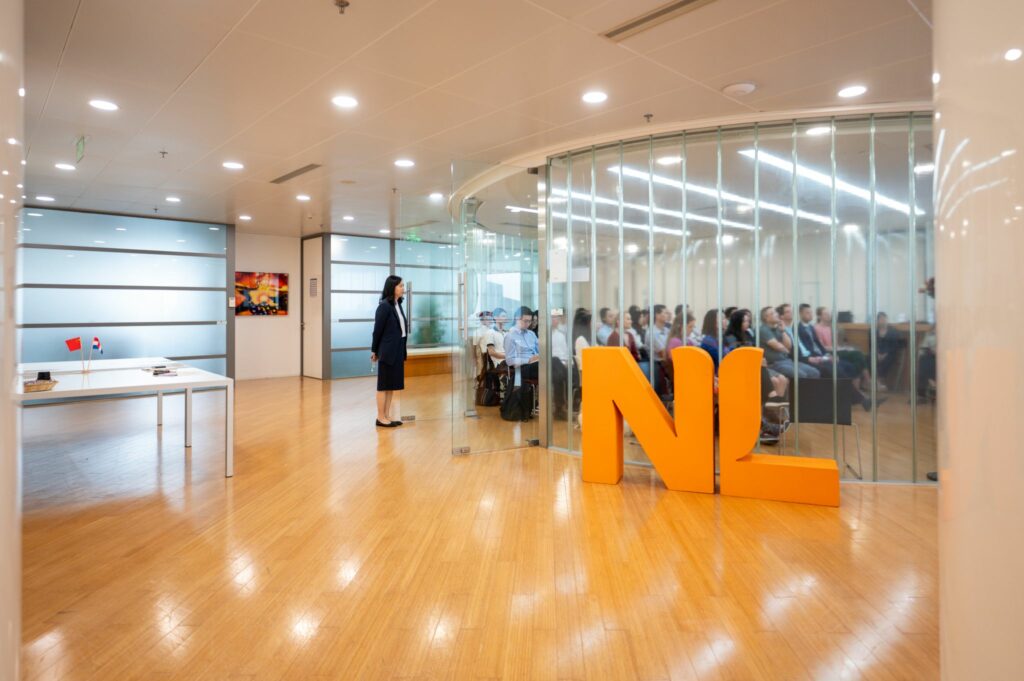
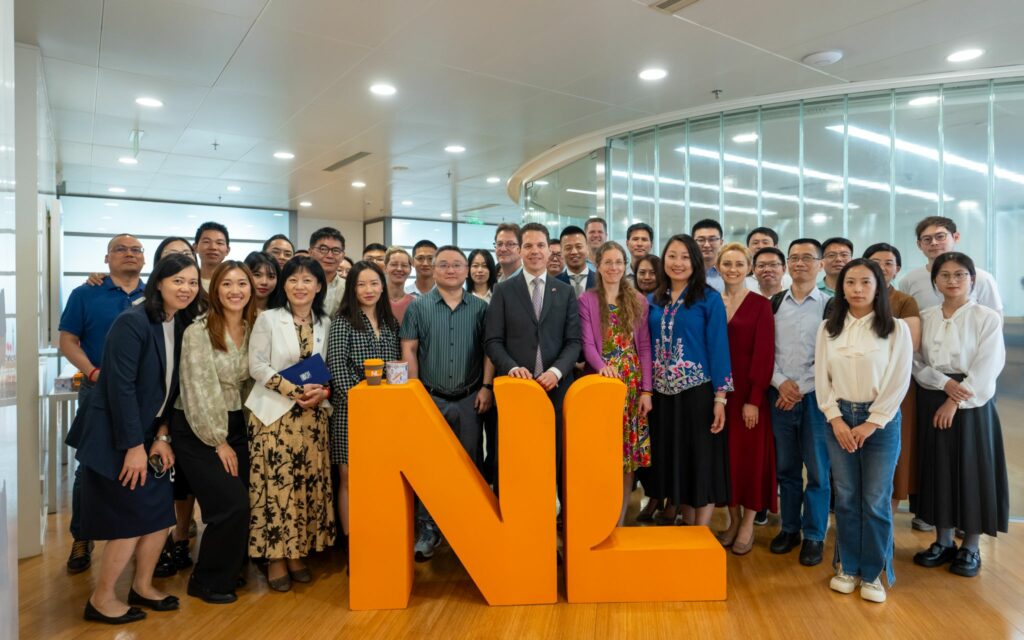
Photos of the session in Guangzhou
The team of scientists, consisting of Martin de Jong, Zhaowen Liu, and Susana Toboso Chavero visited Guangzhou after their first stop in Hong Kong. In Guangzhou colleagues of the Netherlands Innovation Network China, Wielande Li and Fons Klein Tuente, as well as Karin Han of the Consulate General of the Netherlands in Guangzhou, organised a seminar titled “Towards Circular Cities – From Research to Applications.”
The seminar aimed to connect different perspectives on circular cities. Updates on Dutch and Chinese policies regarding circular cities were shared, and findings from the research project were presented to the audience. Attendees included stakeholders from relevant government bodies, universities, knowledge institutes, and the private sector.
The session began with an opening speech by the Consul General of the Netherlands in Guangzhou, Efstathios Andreou, who highlighted the importance of the topic and the value of the research.
The Dutch government has set ambitious goals for the circular economy: to halve the consumption of raw materials by 2030 and achieve a fully circular economy by 2050. The circular economy focuses on reducing waste and maximizing the use of our resources. In the Netherlands, we consider all solutions across the value chain, from recycling to designing for circularity and reusing materials. This model aligns seamlessly with sustainability principles and offers innovative solutions to environmental challenges.
In alignment with the Chinese government’s zero-waste city initiatives, the Netherlands and China can collaborate effectively on developing circular cities. To accelerate this transition, we need to bring together bright minds with diverse perspectives to foster innovation.
We are pleased that NWO and NSFC have joined forces to fund research on “Inclusive Wise Waste Cities,” providing Dutch and Chinese researchers the opportunity to work together. Our team here at the consulate is actively exploring collaboration opportunities on this topic, with multiple initiatives planned for this year. This seminar is part of our efforts.
Efstathios Andreou
The session, which lasted the entire morning, concluded with a fruitful networking lunch.
Consul General of the Netherlands in Guangzhou, Efstathios Andreou and colleagues Wielande Li of the Nehterlands Innovation Network China and Karin Han of the Consulate General of the Netherlands in Guangzhou enthusiastically recorded a re-cap video to share the seminar highlights in an energetic and captivating way.
After Guangzhou, the team of scientists visited Shanghai, where colleagues of the Netherlands Innovation Network China also prepared and hosted relevant events for them, namely the first Dutch Network of Academics in China meeting, along with the Consulate General of the Kingdom of the Netherlands in Shanghai and NWO representative Berry Bonenkamp. At the event, academics discussed their experiences working in China, opportunities for engagement, policy on academic collaboration, and the role of NWO.
One successful example of Sino-Dutch collaboration presented was the Inclusive Wise Waste Cities project. Martin de Jong, Zhaowen Liu, and Susana Toboso Chavero shared insights on proper waste management in cities, with examples from their research on circular workspaces and waste infrastructure in Almere, underscoring how the Netherlands and China can learn from each other’s approaches to solving societal challenges associated with the growing urban population.
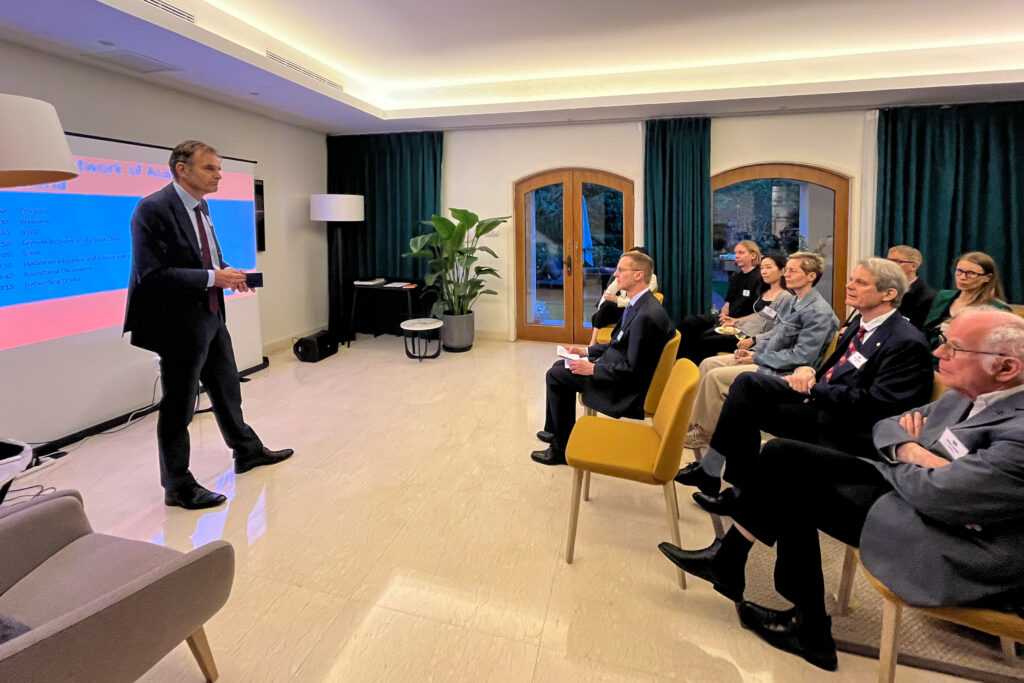
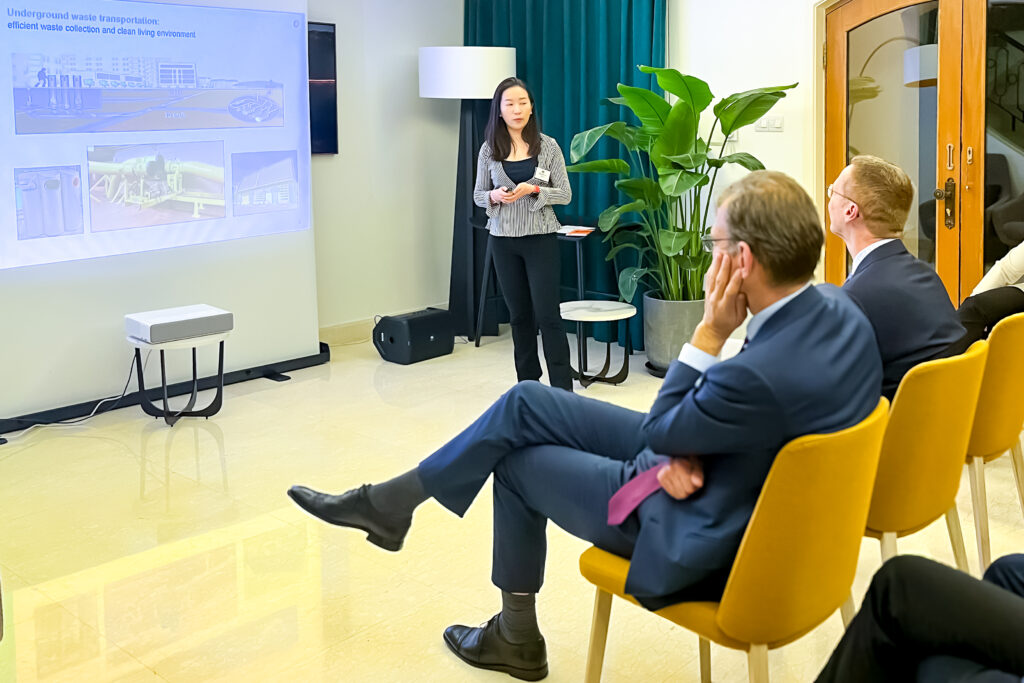
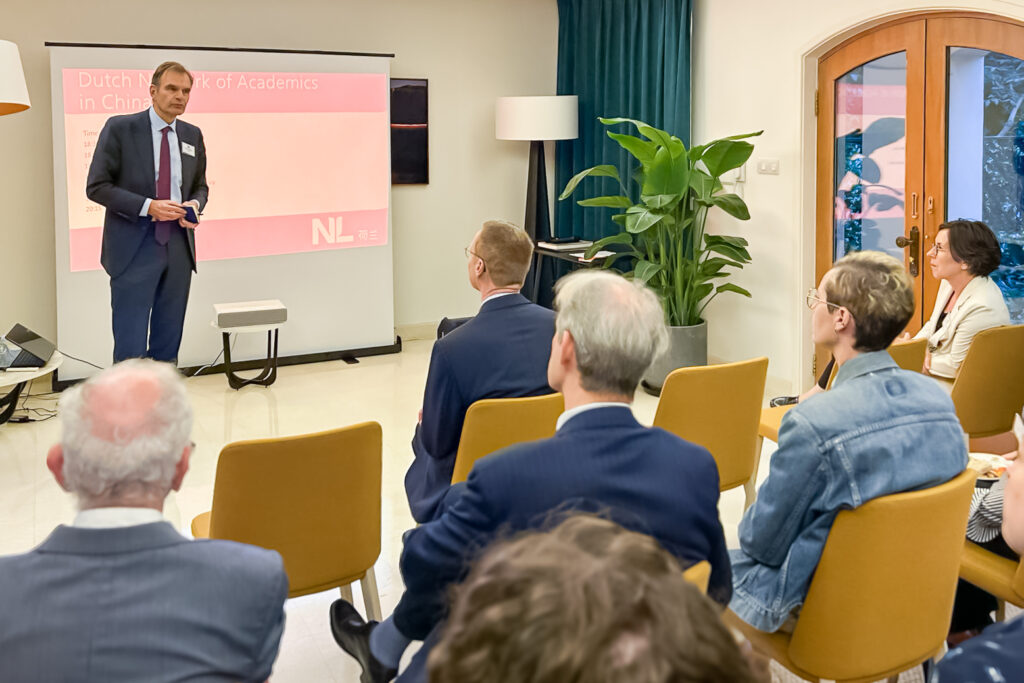
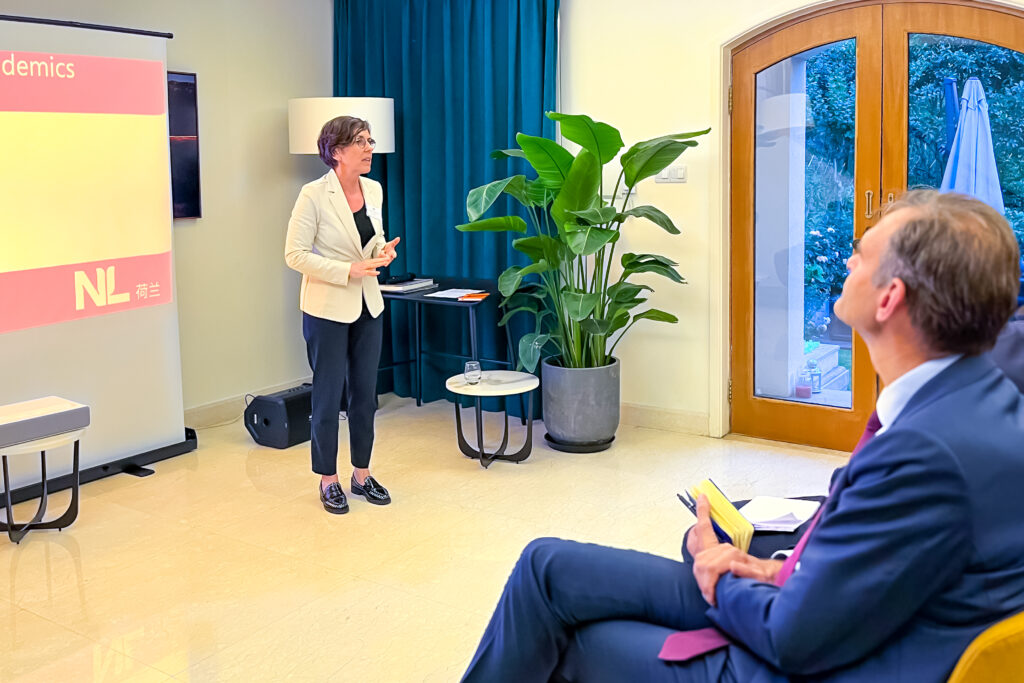
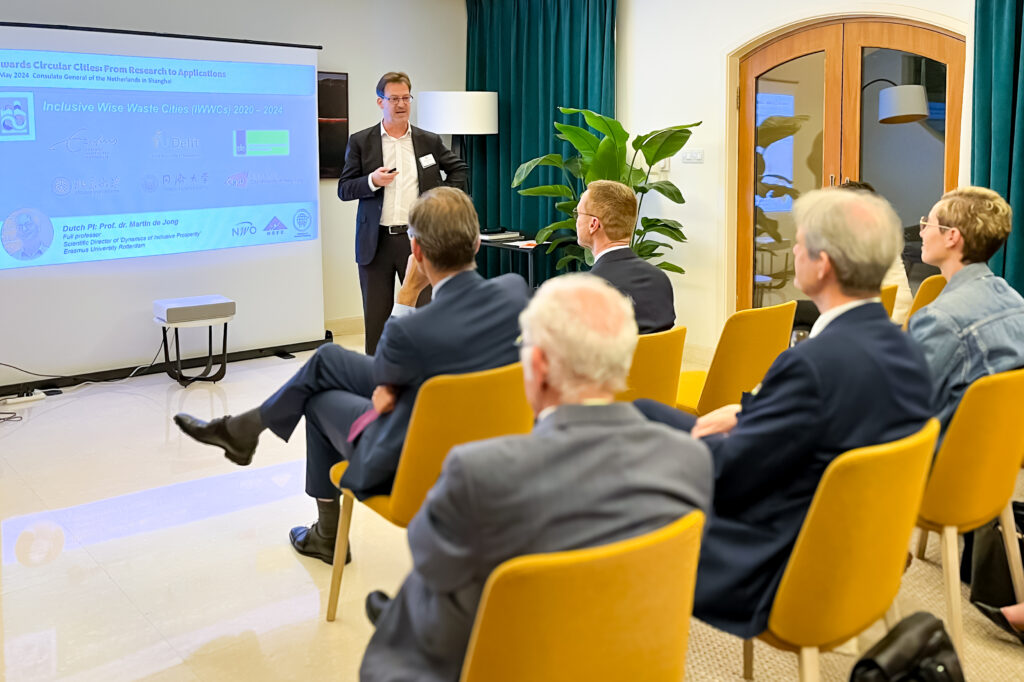
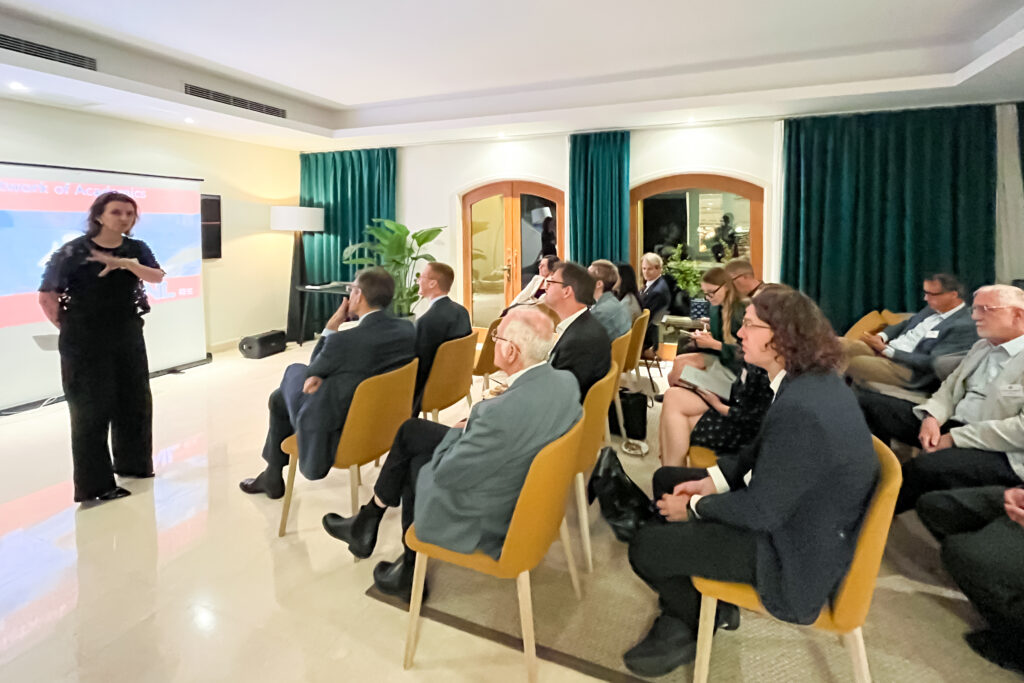
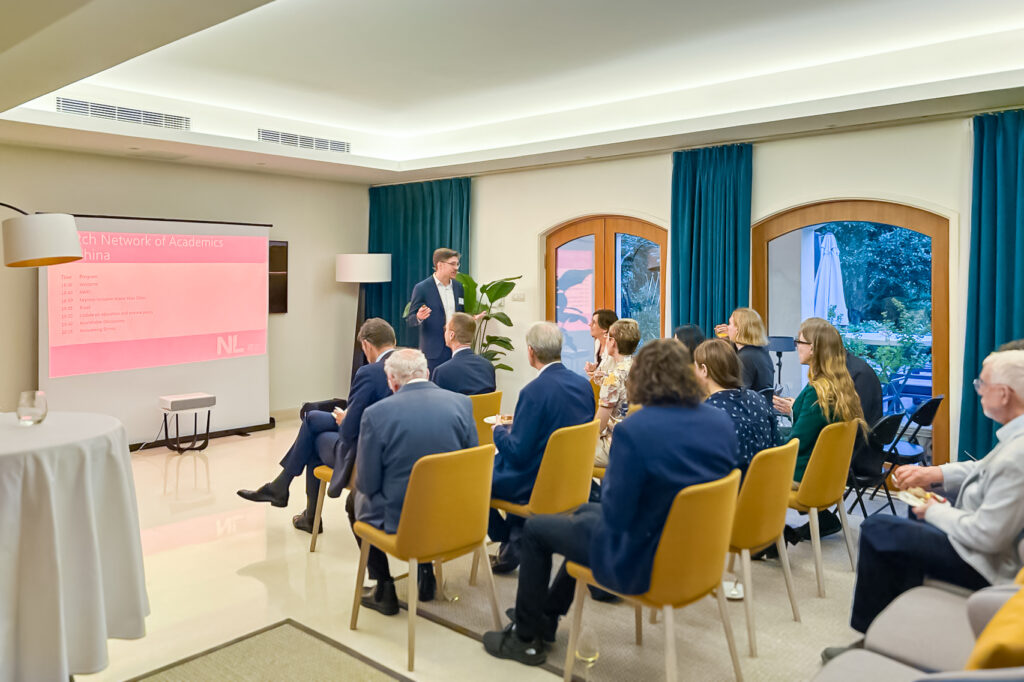
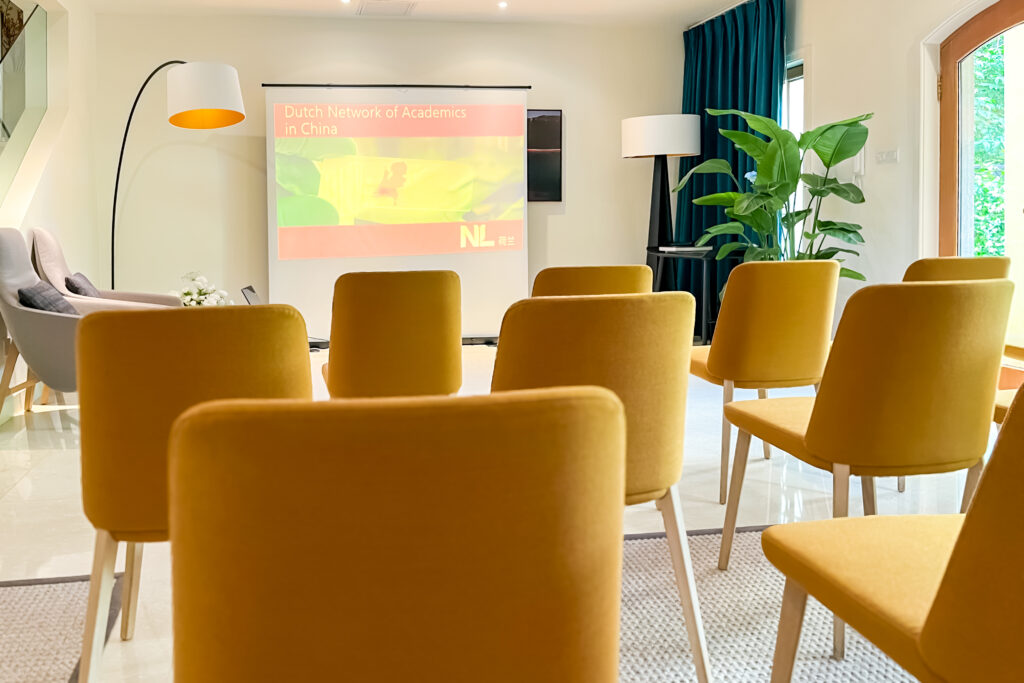
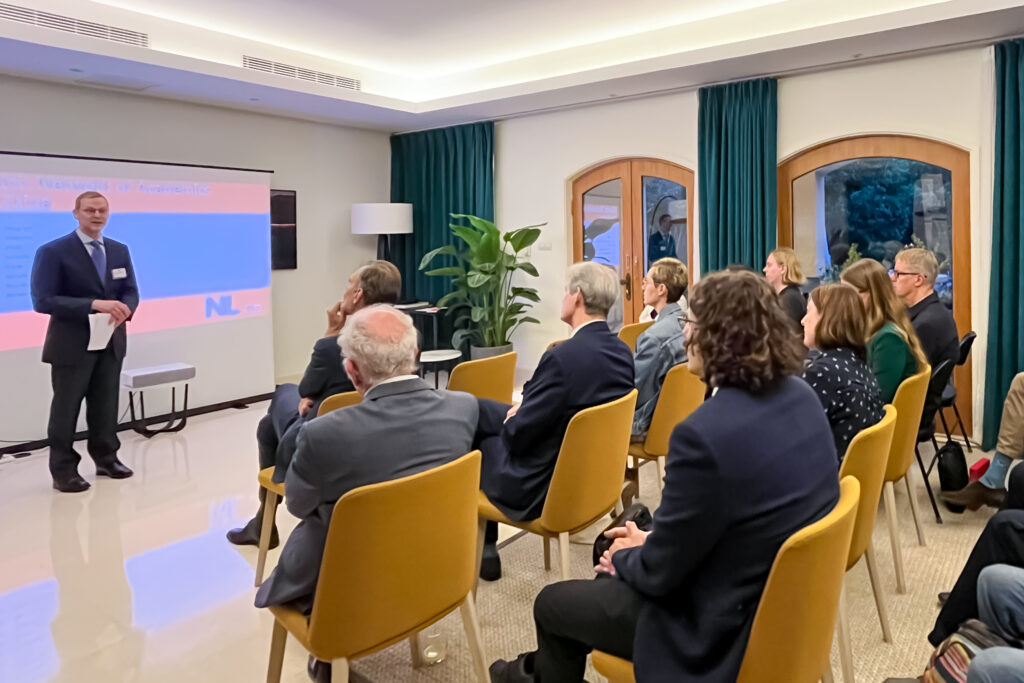
Photos of the session in Shanghai
Following their successful visits to Guangzhou and Shanghai, the scientists, including Martin de Jong, Zhaowen Liu, and Susana Toboso Chavero, visited Peking University on May 16, 2024. They participated in a workshop where all universities in the research collaboration reported their progress and discussed future cooperation plans. The workshop was hosted by the College of Urban and Environmental Sciences and the College of Environmental Sciences and Engineering of Peking University. Martin de Jong shared his insights on smart city development, viewing smart cities as spatial manifestations of 21st-century capitalism. Marcel Hertogh from Delft University of Technology discussed his decade-long scientific cooperation with China, highlighting the opportunities and challenges ahead.
Ma Qing from the Netherlands Innovation Network China supported Counsellor for Infrastructure and Water Management Eric Spaans, who attended the workshop and stressed the importance of Sino-Dutch collaboration on societal challenges such as climate change and the circular economy in his opening speech.
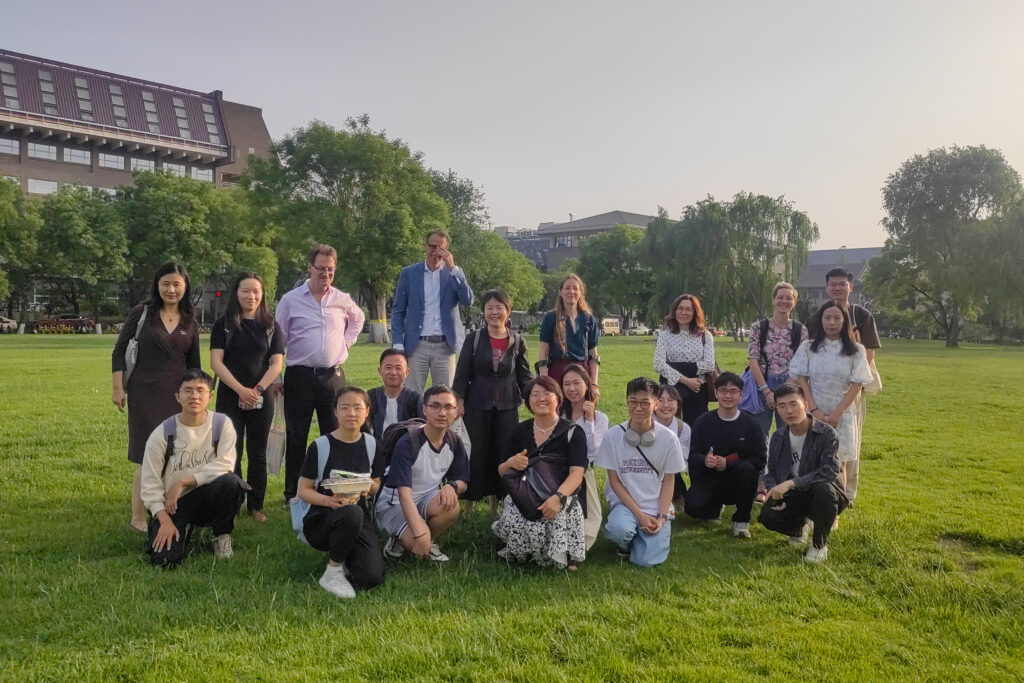
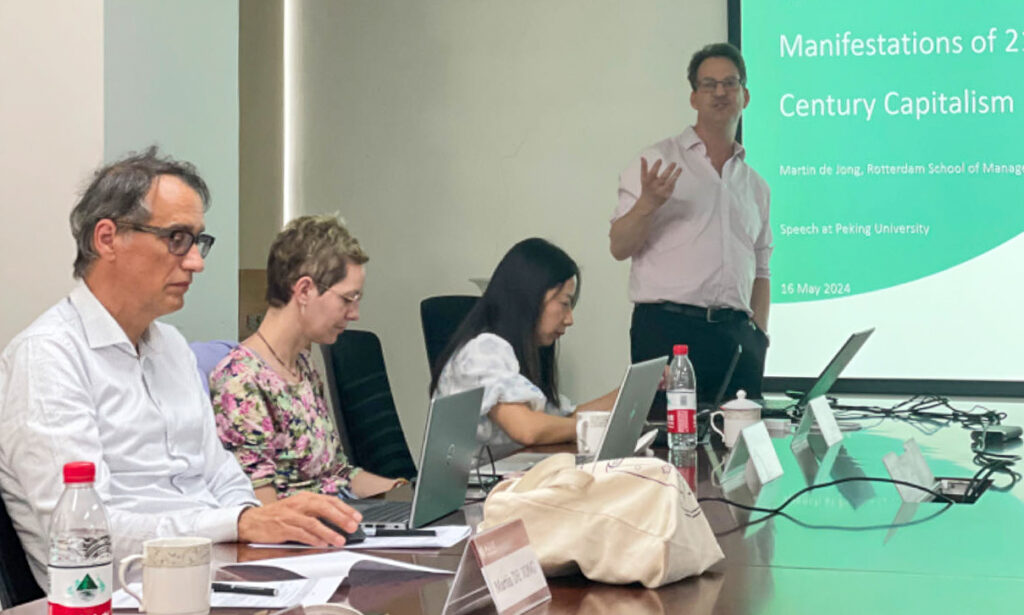
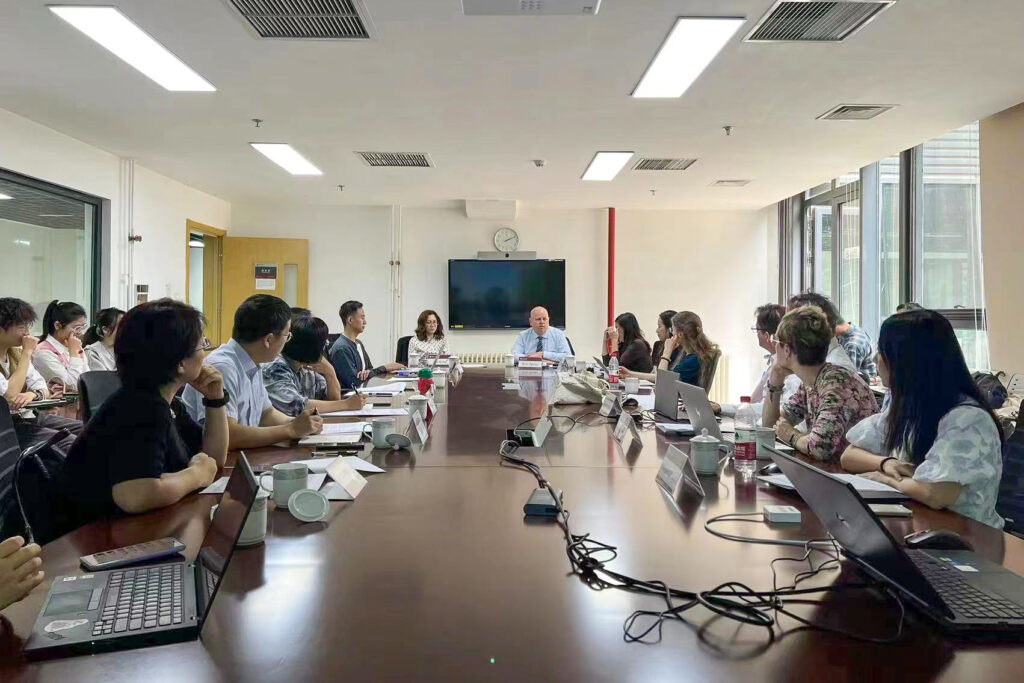
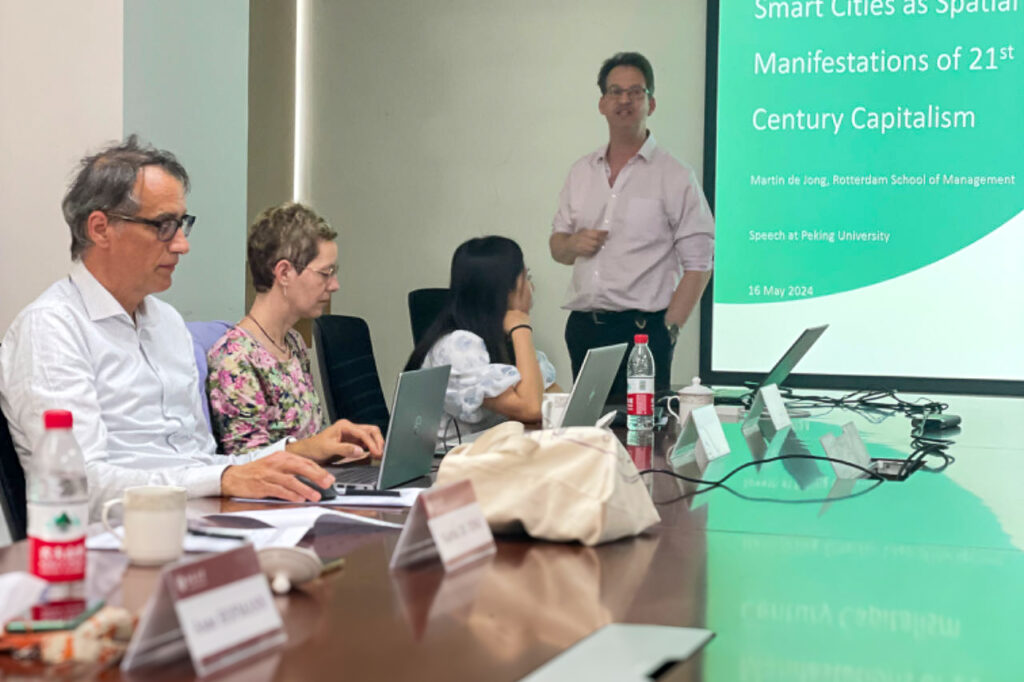
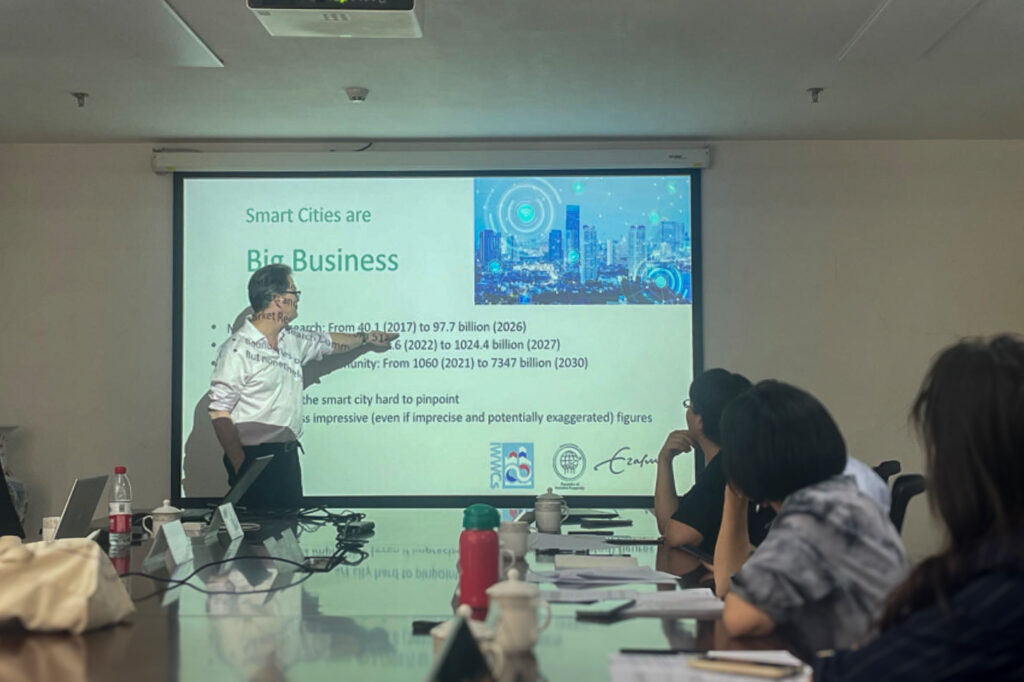
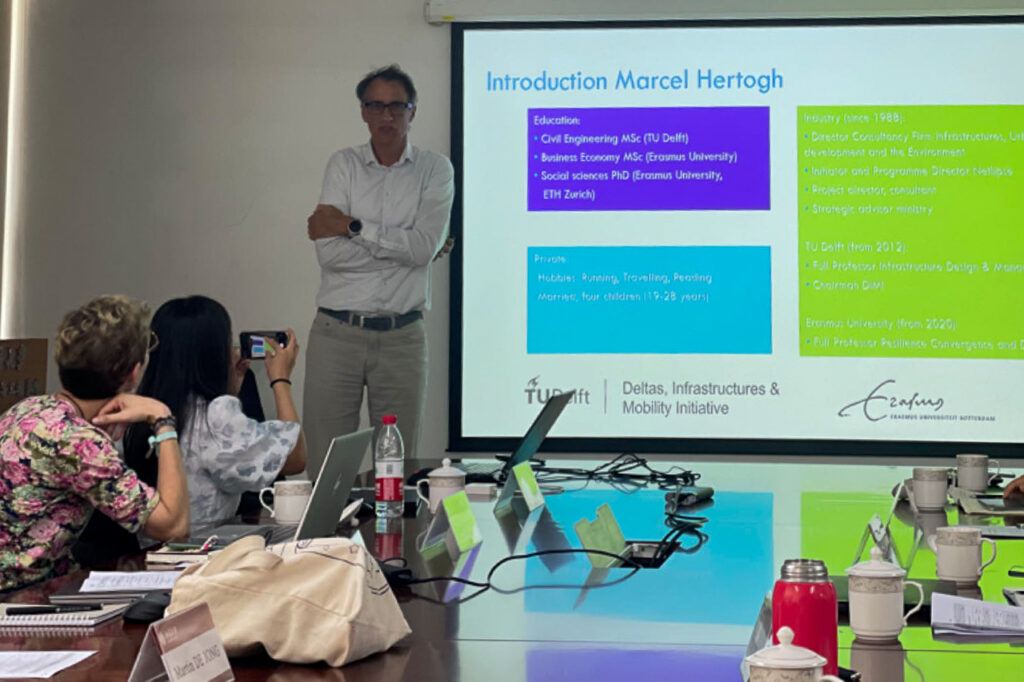
Photos of the session in Beijing
This research project stands as a testament to Sino-Dutch cooperation in addressing global challenges, emphasizing the importance of international partnerships and the collaborative framework established by the MoU between China and the Netherlands.
If you are a scientist considering collaboration in or with China, please contact the Netherlands Innovation Network China at [email protected], and they will gladly assist you in the right direction.
